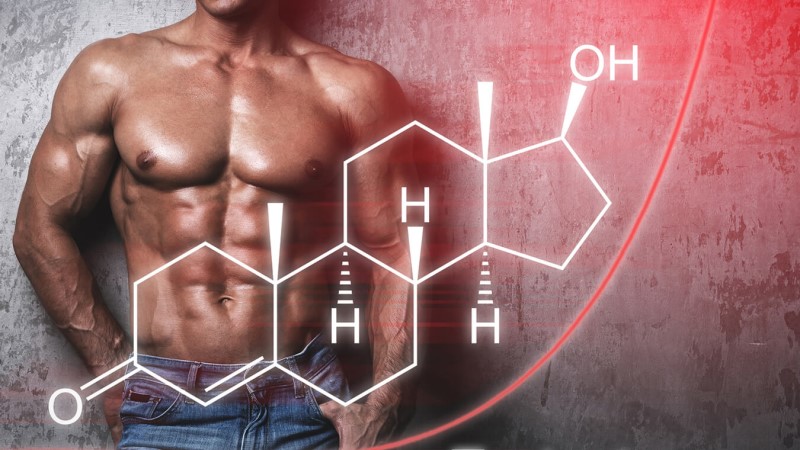
Testosterone and Strength: How Hormones Drive Performance on the Mat – In wrestling, every move demands more than just skill and strategy. It calls for explosive strength, sharp focus, and the resilience to keep going when the match gets grueling. While training, nutrition, and recovery are often discussed in wrestling circles, one powerful factor frequently flies under the radar: testosterone.
Whether you’re a competitive wrestler, a coach, or a fan of the sport, understanding how hormones – especially testosterone – affect physical performance can offer important insights into strength, endurance, and recovery. This hormone is a cornerstone of athletic function and plays a vital role in developing the traits that define great wrestlers.
The Role of Testosterone in the Human Body
Testosterone is a naturally occurring hormone found in both men and women, although men produce it in significantly higher quantities. It’s responsible for a range of physiological processes, including:
- Muscle growth and strength development
- Bone density maintenance
- Red blood cell production
- Mood and mental clarity
- Sex drive and reproductive function
In athletic contexts, testosterone becomes especially important because it affects how efficiently the body builds muscle, repairs tissue, and maintains energy. That’s why Testosterone Health is often a key factor when assessing an athlete’s performance and recovery.
Why Testosterone Matters for Wrestlers
1. Muscle Mass and Strength Gains
Building lean muscle mass is crucial in wrestling – not only to dominate physically, but also to stay within specific weight classes while maximizing functional power. Testosterone promotes muscle protein synthesis, which is the process your body uses to repair and grow muscle fibers after training or competition.
When testosterone levels are healthy, wrestlers can recover faster from intense training, build more lean muscle, and maintain strength through long training cycles. On the other hand, Low T (low testosterone) can lead to decreased muscle mass, slower recovery times, and plateaued strength gains.
2. Explosive Power and Speed
Testosterone also supports the development of fast-twitch muscle fibers – the ones responsible for short bursts of high-intensity effort. For wrestlers, these fibers drive explosive takedowns, quick transitions, and bursts of power needed to pin an opponent or break free from a hold.
A wrestler with optimized testosterone health is more likely to sustain high levels of explosive power throughout a match, especially in high-pressure moments when milliseconds matter.
3. Bone Strength and Injury Resistance
A strong skeletal foundation is just as important as muscle in a full-contact sport like wrestling. Testosterone helps maintain bone density, which reduces the risk of stress fractures and joint issues over time. Wrestlers often train hard and put significant stress on their bodies – healthy testosterone levels help mitigate the wear and tear.
4. Mental Toughness and Confidence
Wrestling is as much a mental battle as a physical one. Testosterone plays a role in regulating mood, confidence, and motivation. When levels are low, athletes may feel more fatigued, less motivated to train, or even experience symptoms of depression and anxiety.
High-level performance requires full mental engagement, and Low T can subtly erode the edge needed to stay focused and aggressive on the mat.
What Causes Low T in Athletes?
It’s easy to assume that only older men need to worry about testosterone decline. But wrestlers of all ages – especially those undergoing extreme training regimens or restrictive diets – can experience drops in testosterone.
Here are a few common contributors to Low T in athletes:
- Overtraining: Too much high-intensity exercise without sufficient rest can suppress testosterone production.
- Inadequate sleep: Recovery happens at night. Poor sleep reduces natural hormone production.
- Rapid weight cutting: Severe calorie restriction or dehydration before weigh-ins can disrupt hormonal balance.
- Chronic stress: Both physical and mental stress elevate cortisol, which can blunt testosterone.
Recognizing early signs of Low T – such as fatigue, decreased strength, slower recovery, or lack of motivation – can help athletes take action before performance begins to suffer.
Supporting Testosterone Health Naturally
Wrestlers can support optimal testosterone levels through smart lifestyle choices that encourage hormonal balance. Here are some evidence-backed strategies:
1. Prioritize Sleep
Testosterone production surges during deep sleep. Getting 7–9 hours of high-quality rest each night is one of the most effective (and often overlooked) ways to support hormone health and athletic performance.
2. Eat Enough (and Eat Smart)
Very low-calorie diets and fat restriction – common in wrestling weight cuts – can suppress testosterone. Healthy fats (like those from avocados, olive oil, nuts, and fatty fish) are essential building blocks for hormone production.
After a match or workout, replenishing glycogen and amino acids helps speed up recovery and supports muscle growth. Post-training meals with protein and carbs should be non-negotiable.
3. Train Strategically
While consistent training is key to performance, too much high-intensity volume can lead to burnout and hormonal imbalance. Incorporate rest days, deload weeks, and varied intensity levels to allow for recovery and hormonal reset.
4. Reduce Chronic Stress
Mental stress impacts physical performance. Wrestlers should find time for relaxation, mindfulness, or hobbies outside the sport. Managing academic pressure, family demands, and competitive anxiety can all positively influence testosterone health.
5. Get Regular Health Checkups
Especially for athletes dealing with symptoms like fatigue, low libido, or stalled progress, it’s worth checking hormone levels with a healthcare provider. Early detection of Low T allows for appropriate intervention – whether through lifestyle changes or medical support.
Final Thoughts: Strength Begins With Hormone Balance
Wrestlers are known for their grit, power, and mental fortitude. But behind every high-performing athlete is a foundation of balanced biology – especially when it comes to testosterone. Whether you’re working toward more muscle, faster recovery, or a stronger mental game, testosterone health is a key piece of the performance puzzle.
By understanding how this hormone influences physical and mental strength, wrestlers at all levels can make informed decisions about their training, nutrition, and recovery strategies. From the first whistle to the final pin, it’s not just your moves that matter – it’s what’s driving them from the inside out.
Stay tuned to WrestlingAttitude, WA.Com On Facebook, Twitter/X, Bluesky and Google News for more.
Testosterone and Strength: How Hormones Drive Performance on the Mat


